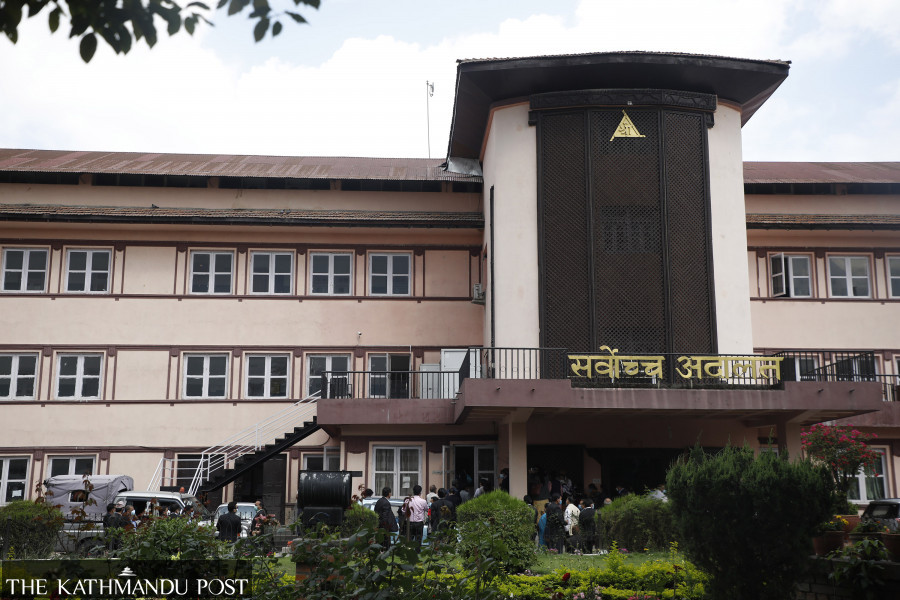Editorial
Restore political course
The administration has a lot on its plate amid vaccine deal fiascos and natural disaster alerts.
Twenty ministers have been relieved of their responsibilities following the Supreme Court’s interim order on Tuesday. Responding to a petition against the two Cabinet expansions by Prime Minister KP Sharma Oli, a division bench of Chief Justice Cholendra Shumsher Rana and Justice Prakash Kumar Dhungana said the Cabinet expansions were unconstitutional after the House was dissolved. Following a series of Supreme Court rulings over the past two weeks that assert the Oli administration to be a caretaker government, Tuesday’s order has come as the biggest blow for Oli, reducing his Cabinet to just five ministers as Nepal tries to emerge out of a deadly second wave while cascading disasters have ravaged the country in the first week of the monsoon.
Interpretations as to how the political landscape will evolve hereon will vary; but similar to disasters, a string of political developments and legal battles have pushed the country further into uncertainty and threatened the constitution. Oli’s gambit was destined to fail when he roped in the Mahanta Thakur-Rajendra Mahato faction of the Janata Samajwadi Party after dissolving the House on May 21 for a second time. The denial that he is a caretaker prime minister has only come to haunt him now. And the latest interim order that has quashed the appointments of 17 ministers and three ministers of state comes as the Constitutional Bench starts the final hearing on petitions against Oli’s May 21 dissolution itself. Whatever the outcome, governance is already taking a hit, especially when the administration has a lot on its plate amid vaccine deal fiascos and natural disaster alerts.
The deepening political crisis results from the politicians’ lust for power and a clash of egos that have back-burnered governance more than anything else. Both the leadership and the opposition have lost all political and moral grounds and failed to rise on every occasion to show mature statesmanship. For Oli, everything has been about consolidating power from the very start. He has openly challenged the provisions in the constitution and hard-won freedoms, no matter what is at stake or the repercussions, to establish his point, even if it meant splitting the ruling party or political polarisation. As for the opposition, the political course of vengeance and unseating opponents has never before witnessed the level of complexities and vulgarity we see now, where rival factions are at each other’s throats.
These are ominous developments for a fledgling republic, one that threatens Nepal’s federal ambitions and development goals. Time will tell if the current political course to nowhere will seek a timely correction and how politicians will reinvent themselves to address the pressing issues; but make no mistake, the recent chain of events has disillusioned the public. It is, therefore, the duty of politicians who have the burden of representation to serve their electorate and keep up with their election promises, especially when citizens are at the risk of dying due to Covid-19 and the imminent threat of disasters hangs like the sword of Damocles.
Poor governance, by far, is Nepal’s biggest epidemic for which the public has been put to the test for decades of instability and bloody war by incompetent and power-hungry politicians who disregard democratic values and the constitution, which they took an oath to protect and abide by. This state of chaos results from the politicians’ failure to deliver on their primary duty to serve the people. The need of the hour is to secure life-saving vaccines and implement the budget to attain practical goals after being haemorrhaged by the pandemic. Regardless of the final verdict on the May 21 dissolution, both the Oli administration and the opposition need to keep aside their arrogance and vested interests to restore the political course and do what a government does—provide governance.




 27.41°C Kathmandu
27.41°C Kathmandu














